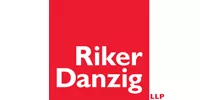As part of the recently enacted Consolidated Appropriations Act, 2021 (the "Appropriations Act"), the federal government did not only provide relief to stem the effects of the COVID-19 pandemic, but it also adopted the No Surprises Act.
The No Surprises Act (the "Act") does not become effective until January 1, 2022, and, for those providers who practice in New Jersey, the Act operates similar to New Jersey's Out‑of‑Network Consumer Protection, Transparency, Cost Containment and Accountability Act (the "NJ OON Act").
Under the Act, patients are protected from unexpected "surprise" medical bills that could arise from a number of scenarios, including the most common scenarios: (i) emergency care provided at an out‑of‑network facility or at an in‑network facility by out-of-network providers; and (ii) out‑of‑network non‑emergency care provided at in‑network facilities without the patient's informed consent.
Patients under the Act are only required to pay the in‑network cost‑sharing amount, and this amount counts toward a patient's health plan deductible and out of pocket cost‑sharing limits. The in‑network cost‑sharing amount is calculated using the health insurance carrier's median contract rates recognized for a similar specialty and provided in the same geographic region, unless the state in which the services are furnished has a law that determines the price. If the state has its own law, then the State law applies. Out‑of‑network providers will not be permitted to balance-bill patients beyond the cost‑sharing amount unless the provider gives the patient notice of the provider's out‑of‑network status, delivers to the patient an estimate of charges within certain specified timeframes, and obtains the patient's written consent prior to the delivery of care. However, a written consent is not valid when the care is for urgent services, or the provider is an ancillary provider that a patient does not select, such as a hospital radiologist, anesthesiologist, etc. Violating these provisions comes with stiff penalties, including federal civil monetary penalties of up to $10,000 per violation.
If the cost‑sharing payment does not cover the bill, then out-of-network providers may be entitled to an "Out-of-Network Rate" payment. Under the Act, the health insurance carrier must make this additional payment (the amount to be determined by the carrier) directly to the out-of-network provider, or issue a notice of a denial, within 30 days from when the out-of-network provider transmits the bill. If the out‑of‑network provider disagrees with the payment amount or denial, the parties will have 30 days to agree on an amount. If a state in which the services are furnished has its own law that can determine this price, then the State law applies. If not, then one of the parties may trigger the independent dispute resolution process, which will be conducted by a neutral arbiter approved by the federal government.
Each party must submit a final offer to the arbiter, who will then consider which payment is the offer that should apply. The Act does not allow the arbiter to split the difference or determine another reasonable amount. In deciding which offer to accept, the arbiter may consider additional information, including: the median contracted in‑network rate; the market share held by the out‑of‑network provider; the out‑of‑network provider's training and experience; the teaching status, case mix, and scope of services of the out-of-network provider; the complexity of care provided; and, if the parties had an in-network relationship in the past, the in-network contracted rates.
The arbiter cannot consider CMS rates, the amount the out-of-network provider usually bills for the services, or the usual and customary charges.
Moreover, the Act, like the NJ OON Act, requires out‑of‑network providers to make certain disclosures to patients. Similarly, health insurance carriers are required to make certain disclosures to their subscribers and provide certain benefit information to out‑of‑network providers.
Importantly, the losing party must pay the administrative fees associated with participating in the independent dispute resolution process. This provision is intended to encourage the parties to settle on an amount before the arbiter makes a decision.
Although many providers have criticized these type of laws, like the NJ OON Act (and it certainly could be better), at the very least, these laws provide clarity and more efficiency; whereas, before their enactment, litigations involving out-of-network billing took years, were contentious, and usually involved fraud counterclaims.
In addition, a recent study published in Health Affairs reviewed and analyzed nearly 1,700 surprise billing arbitration cases completed in New Jersey under the NJ OON Act. The study reached several conclusions, including that the NJ OON Act has been beneficial to out-of-network providers. According to the study, health care providers won more arbitrations than not, succeeding about fifty‑nine percent (59%) of the time compared to forty‑one percent (41%) of the time for health insurance carriers. The average arbitration award, approximately $7,222, was considerably higher than typical in-network payment amounts. Orthopedics, general surgery, and trauma and emergency medicine were the most common specialties to participate in arbitration.
It will be interesting to see how the preemption issues play out, especially if the Act proves to be more beneficial for out-of-network providers than the laws in their own states.
Originally Published by Riker Danzig, January 2021
The content of this article is intended to provide a general guide to the subject matter. Specialist advice should be sought about your specific circumstances.





